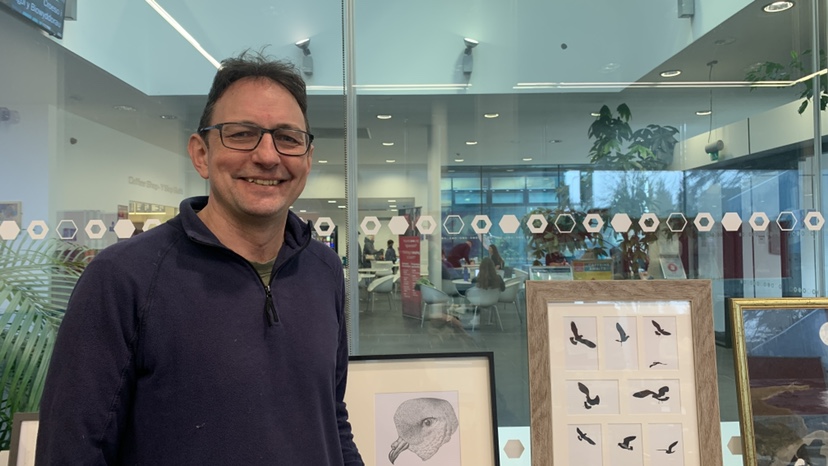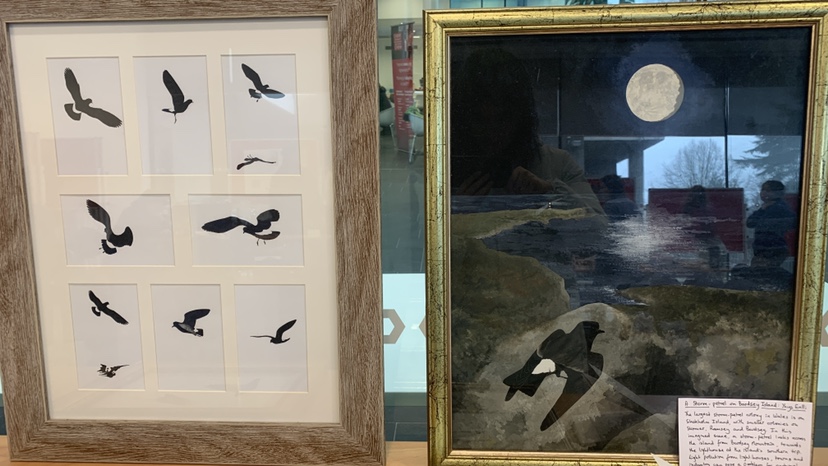The only Welsh colony of northern gannets are at risk from a mixture of bird flu, climate change and plastic pollution, we speak to scientist Robert Thomas to find out the solutions.

A globally important colony of seabirds in Wales is facing serious mortality because of bird flu and climate change, according to a leading Cardiff conservationist.
Tens of thousands of birds have died across Europe and Wales’s only gannet colony on the island of Grassholm, Pembrokeshire is at particular risk, says Robert Thomas, a senior lecturer at Cardiff University School of Biosciences.
“Wales has some global importance for breeding colonies of northern gannets,” says Robert. “And bird flu is a risk to those colonies. So especially this year, we are now starting to see significant deaths of seabirds in Wales, which is a new phenomenon, and something that we’ll need to watch very carefully over the next few years to see how it develops.”

Bird flu raises worries among groups like RSPB and Birdlife, which regard this outbreak as the worst the UK has ever seen.
“So, it is a very worrying time in terms of seabirds particularly in Wales, and the British Isles holds globally important populations of the seabird species. We have an international responsibility here to protect them as far as we can.”
Climate change has and will continue very much to influence seabirds. As the oceans warm, the distribution and abundance of food for the birds especially is being affected. The impacts of snow across a wide range of different seabird species. Bird flu and climate change both occurred, having doubled negative effects on the seabirds’ colonies.
Seabirds in Wales are an important part of the global marine food web. They eat fishes and planktons and crustaceans, etc. Seabirds themselves provide food for predators. Seabirds fertilize the soil on islands where they breed. Thus, seabirds in Wales are a very important part of the global marine ecosystem. When something like bird flu comes along, It becomes a big disruption to the global marine ecosystems.

Plastic in the environment can cause some health problems among sea birds, for example, the fibrotic disease plasticosis.
“Something that we can all do is minimizing the amount of plastic pollution. Seabirds are very affected by plastics. They can get entangled in it, eat it or feed it to their chicks, and that then is a toxic form of pollution that we’re putting into the sea… As individuals, we can help to remove plastics from beaches for example.
“Potentially there is more legislation that can be brought through to control plastic pollution. Another aspect is protecting the food of seabirds. So marine protected areas are a very important idea now in conservation of seabirds,” says Robert.
Many pollutants have an impact on birds, ranging from more obvious pollutants like trash to oil spills. Robert believes the governments potentially have a very important role in controlling how we use these chemicals. A lot of the problems that have accumulated in the food chain because of those chemicals. Governments have a lot of responsibilities to use their legislation to guide the way that humans behave. This also includes chemical organizations and fisheries.
